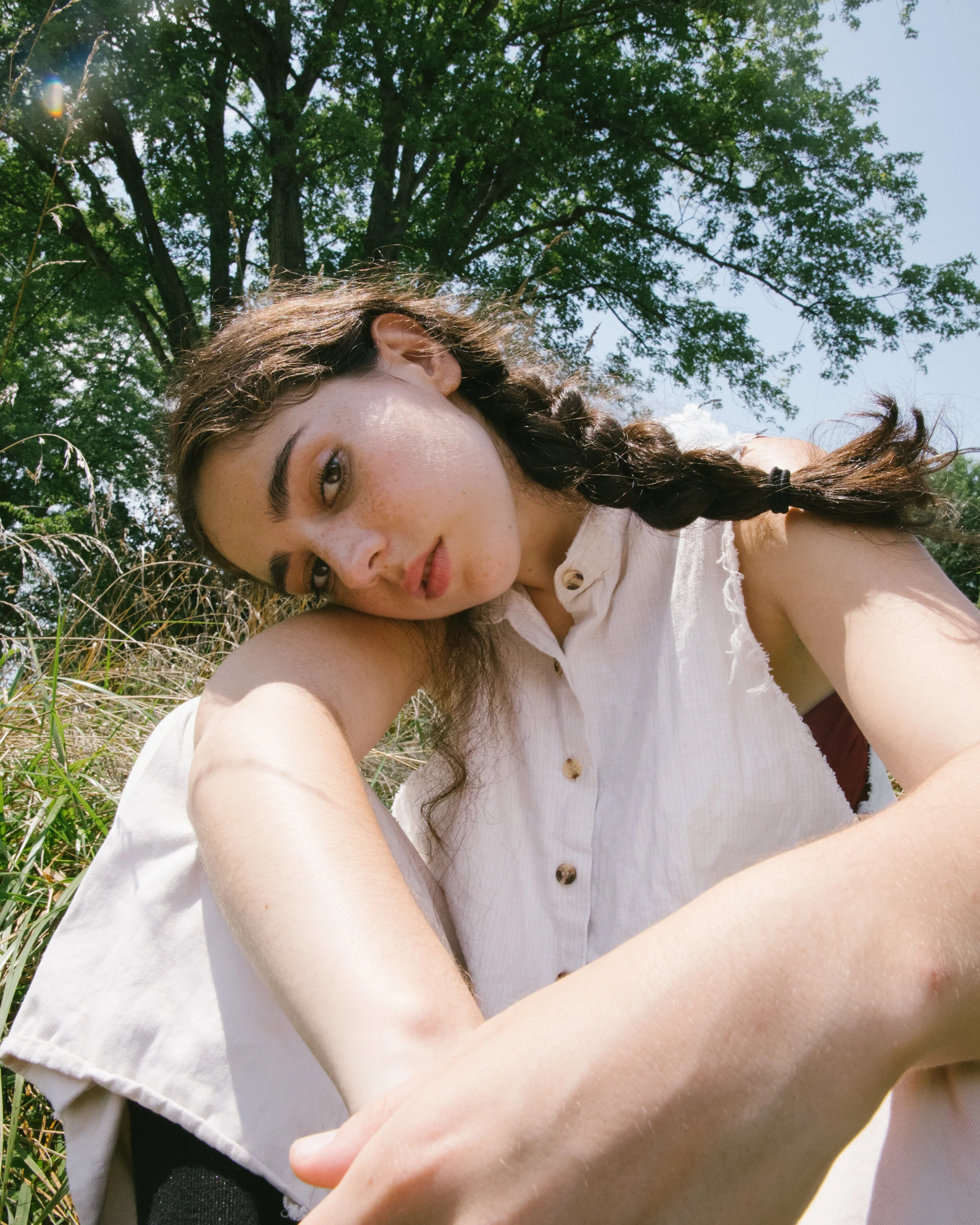SAMIA | 'The Baby Reimagined'
by Kristin Robinson
Photographed by Muriel Margaret
As quarantine dragged into its fifth month, for many, it became apparent that there was no return to normalcy in sight and definitely no salvaging the year. On the brink of Autumn, amid continued tour cancellations, stay-at-home orders, and spiking death tolls, Samia appeared, nearly out of thin air, with one of the most essential quarantine companions: her debut album The Baby. Searingly autobiographical, The Baby is a portrait of the mononymously-known indie rocker that leaves little to the imagination.
When speaking to Samia, she admits she thought the record might be too personal for others to draw any connection to. “I just write so specifically. I write exact transcripts of conversations.” In fact, that is precisely how she begins the record in its introductory track “Pool.” She sings, “I said ‘I’m afraid that I might need men’ / You said, ‘need me then.’” But its realism is exactly what brings the record its might. For a second, you are there, staring at the moon from the pool of a stranger’s home, living inside of her script. With the intention of “trying to make beauty amidst the fear of blatantly ephemeral moments,” as she puts it, she succeeds. The moment is brief but deeply immersive.
Though the album was written over the span of about two years, mostly on the road, its need to derive beauty out of fear and passing time feels fitting for the state of the world at its release in August. “I’ve been sitting on this for a really long time,” she notes. “I didn’t really feel like I could move forward from those songs until they were released. It was just so vital to say what I was communicating in those songs.”
Looking beyond its coming-of-age stories, the deeper heart of Samia’s The Baby is her community, specifically her maternal grandmother and her namesake. The elder Samia passed away about five years ago, but the singer wove her memory into every song, starting with the first track, “Pool.” In an ambient minute-long introduction, her grandmother’s voice enters, singing a Lebanese lullaby. “If there’s anyone I would want to introduce me on my debut record, it would be her,” Samia says. “That lullaby was the last voicemail I had of her. She would always sing this to me growing up.”
Photographed by Muriel Margaret
As Samia explains the lullaby to me over a zoom call, the depth of her grandmother’s impact reveals itself to the songwriter in real time. “She was always such a matriarch and a pillar of her community. I always think I have to do everything myself, but I look back on her life and what she was able to do by needing people and letting people need her,” she pauses and her eyes widen as she continues, “I am just making this connection now for the first time. Really this whole album was so much about leaning on community for me.”
Recently, while in a session with a collaborator of hers, Samia began rethinking The Baby post-release. The record received immediate critical acclaim, even from some of the toughest voices in the business, and its success felt like something that deserved celebration. So she decided that she would give the album over to other performers. Maintaining her emphasis on community, Samia called upon her favorite artists, befriended over the last few years of touring and music-making, like Bartees Strange, Charlie Hickey, and The Districts, and asked them to create their own versions of The Baby’s tracklisting. “I didn’t really expect anyone to want to do it,” she laughs nervously, “but they did.”
Dubbed The Baby Reimagined, the record, released January 15, shows Samia’s work molded into the image of other artists but still packs the same plaintive punch as before. Though Samia always feared her work was too confessional, Reimagined proves there is an innate sense of universality to what she has written. Her words are translatable in the hands of other narrators. “This is one of the most exciting things I’ve ever gotten to do,” she says. “It really felt like the celebration the album needed since we haven’t been able to tour.”
Beyond just The Baby itself, looking for a sense of community has become a naturally recurring pattern in Samia’s life. She tells about her recent Manhattan exodus, trading The City in for Nashville in the last few months as many others have during the pandemic. For her, the move was brought on by a few things, among them wanting to join the music scene in Nashville. “People care a lot about songs. I think there’s an emphasis on telling the truth and being yourself here.” Away from the pressures of NY/LA music moguls and their hunger to mold superstars, Nashville has become a respite for the indie artist, though she is still just getting settled.
Photographed by Jessica DiMento
She has lived most of her life split between the bicoastal entertainment capitals, spending her younger years in Los Angeles before heading to New York City in high school due to her parents’ careers. Born to two working actors, Kathy Najimy and Dan Finnerty, her exposure to the entertainment industry has been nearly constant throughout her life, whether she was on set with her parents or listening to show tunes (particularly Stephen Sondheim, her favorite) in the car. For a time, she studied acting and musical theater, something she jokes you can even catch when she is singing every now and then, “I do notice sometimes I have obnoxious diction when I sing, like emphasizing my T’s in a way that can only be learned in musical theater.”
The first song she wrote for The Baby was “Is There Something in the Movies?,” the album’s quiet finale. A lament about the time she spent in the industry, she says, “it almost always felt like too much pressure for me to be an actor. I think I’m just too sensitive for a lot of it.” Samia explains that finding a love for indie music was a god-send to her in her teens. Though it's still a difficult ambition, the stakes feel lower and the art feels higher. It’s not as capitalistic and (as a consequence) not as cruel. “The people I’ve met in this little world are just so normal and genuine and kind.”
Undoubtedly a hold-over from her background as an actor, her writing across The Baby has an elevated sense of drama and scripting to it that feels distinctly Samia. In “Does Not Heal” she describes climbing over a fence to break into a school bus lot and cutting her thigh on the jagged chain links in the process. It’s visceral and desperately nostalgic as she sings in falsetto, “I hope it does not heal” over and over. The cut, though painful and unsightly, is a reminder of the night that it happened and that it is still recent enough to hang onto. To heal is to lose the tangibility of the memory. How can you prove something happened to you if you have nothing to show for it?
As the new year begins and Samia shifts her focus to future projects and eventually tour plans, The Baby and The Baby Reimagined remain physical keepsakes of her life (and our lives now, too), proving it all really did happen. “I’m grateful that so many people have found interpretations of these songs that fit into their lives. I love seeing how others find personal connection to it.”



